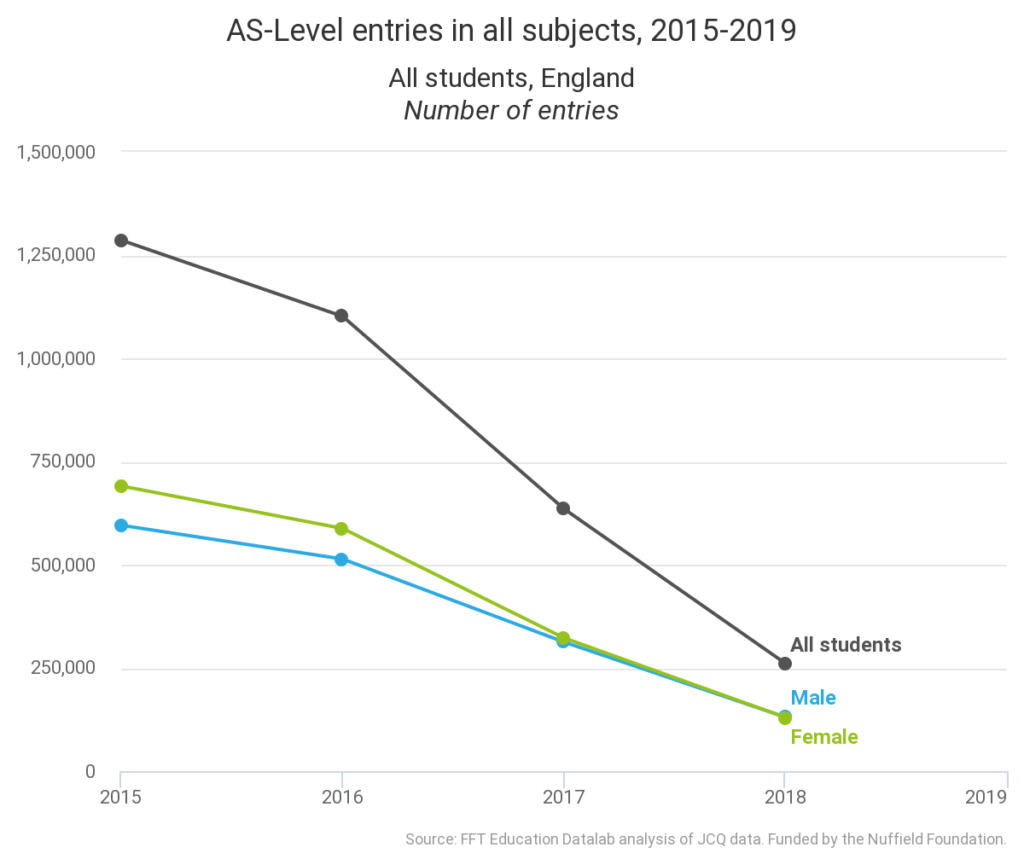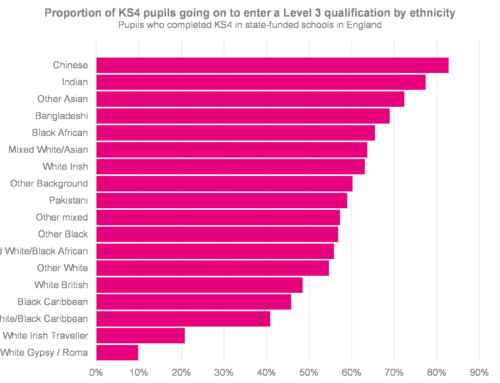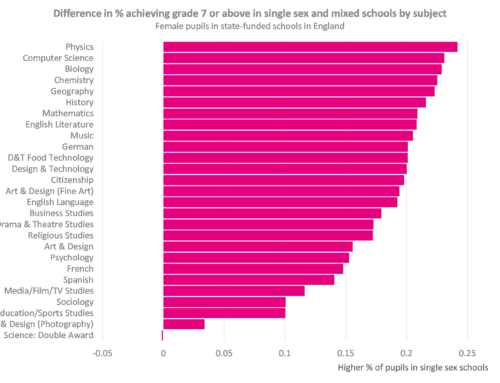A-Level and AS-Level results come out on Thursday, and we’re expecting to see some big changes. Here are four things to look out for.
1. We’re expecting to see a decrease in maths A-Level entries in England…
Maths – the most popular A-Level, with more than 90,000 entries in England last year – has seen increasing entry numbers in recent years. We’re expecting that to have gone into reverse in 2019, however.
The exams regulator for England, Ofqual, publishes provisional data on A-Level entries in May. While this doesn’t take into account late entries, it give a fairly good idea of changes in entry numbers from one year to the next.
A note on coverage
Unless otherwise stated, figures in this post relate to England only – though results for Wales and Northern Ireland will also be published on Thursday.
The figures suggest a decrease of a little more than 5% in maths entries between 2018 and 2019. This does need to be seen in the context of a fall of around 3% in the 18-year-old population – but it would mean a reversal of the upward trend of recent years, visible in the chart above.
There had been warning from the Mathematics Association, among others, that the ‘big, fat’ maths GCSE – which this year’s cohort of A-Level students would have been the first to sit – would lead to a drop in entries. The loss of AS-Levels to all intents and purposes (more on which below) is also likely to have also contributed to there being fewer maths A-Level entries.
2. …and an even bigger decrease in English language entries
The number of English language A-Level entries dropped markedly – by 14.8% in England – last year, and we’re expecting it to have done so again this year. The provisional Ofqual data suggests a fall of more than 22.5%.
English language isn’t a mass-entry subject at A-Level – there were fewer than 20,000 entries in England last year – but nonetheless it’s one that will always attract attention.
What might explain this fall in entries?
A switch to STEM subjects is likely to be at least part of the explanation. While maths entries are likely to be down, the provisional figures show entries in the sciences up by healthy amounts (discussed further below), as they were last year.
So efforts by policymakers to increase the uptake of STEM subjects might explain in part the decrease in English language entries.
And there are other subjects such as business studies, politics, psychology, and sociology that all seem to be growing in popularity.
3. Science entries will be up, with languages stabilising
Briefly, the provisional Ofqual data suggests a few other interesting trends. Entries in the sciences all look to be up in England – biology and chemistry by around 9%; physics by more like 3%. Again, that’s against a backdrop of a smaller 18-year-old population than last year.
It also looks like a fall in the overall number of French, German and Spanish entries in recent years has been arrested. If the Ofqual numbers are borne out, when looked at together, entry numbers in the three subjects will be broadly the same as last year.
4. AS-Level entries are now down to fewer than 150,000 in England
Finally, it looks like there are going to have been fewer than 150,000 AS-Level entries in England this summer. Provisional figures put the number at around 120,000.
As recently as 2015 there were 10 times this number of entries in England, as the chart below shows. From the following year, though, numbers started to decline markedly, as AS-Levels in the first subjects to be reformed ceased counting towards A-Level grades.
We’ll be publishing live analysis of this year’s A-Level results from 9.30am on Thursday. Sign up to our mailing list to be notified about these blogposts, or check back here on the day.
In the meantime, take a look at our microsite, which allows you to explore trends in A-Level and AS-Level entries and attainment yourself. We’ll be adding 2019 data at 9.30am on Thursday.







Leave A Comment